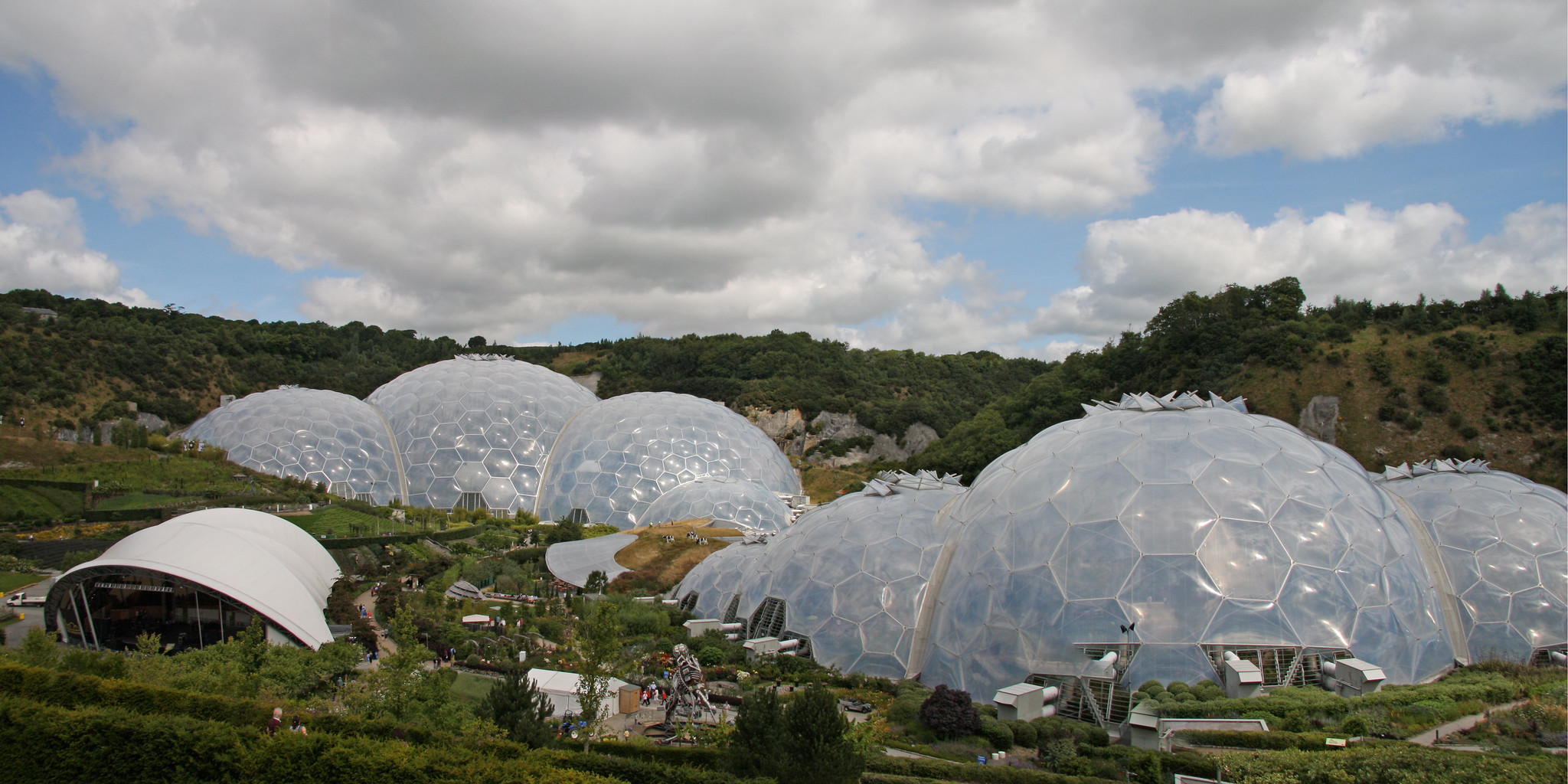The Eden Project is a unique environmental attraction and educational charity located in Cornwall, England. Opened in 2001, it features massive geodesic domes called “biomes” that house thousands of plant species from diverse climates and environments. The two main biomes simulate rainforest and Mediterranean conditions, while an outdoor garden showcases native and temperate plants. The project aims to educate visitors about the importance of plants, sustainability, and human dependence on nature. It also serves as a venue for cultural events, concerts, and research into sustainable practices. The Eden Project has become one of the UK’s most popular tourist attractions, drawing millions of visitors annually and contributing significantly to the local economy.
Nestled in the heart of Cornwall, England, the Eden Project stands as a testament to human ingenuity and our enduring fascination with the natural world. This sprawling complex, built in a former china clay pit, has become a global icon for environmental education and sustainable living. At its core are the massive geodesic domes, known as biomes, which house an astonishing array of plant life from around the globe.
As visitors approach the site, they’re immediately struck by the futuristic appearance of the biomes. These enormous structures, resembling giant soap bubbles or alien spacecraft, dominate the landscape and hint at the wonders contained within. But it’s only upon entering that the true magic of the Eden Project reveals itself.
The journey typically begins in the Rainforest Biome, the largest indoor rainforest in the world. Stepping inside is like being transported to another continent entirely. The air is thick with humidity, and the temperature rises noticeably. Towering trees stretch towards the dome’s ceiling, their canopies creating a lush green ceiling overhead. Visitors wind their way along elevated walkways, getting a bird’s eye view of the diverse ecosystems below.
As they descend to ground level, guests encounter a riot of tropical plants. Banana trees, coffee plants, and rubber trees jostle for space alongside vibrant orchids and exotic ferns. The air is filled with the gentle mist of a waterfall, adding to the immersive experience. It’s not uncommon to spot colorful butterflies flitting between the foliage or to hear the calls of tropical birds echoing through the dome.
Moving on from the Rainforest Biome, visitors find themselves in the Mediterranean Biome. The contrast is immediate and striking. Gone is the humid air of the tropics, replaced by the dry warmth of a Mediterranean summer. Olive trees and grape vines line terraced hillsides, while fragrant herbs like rosemary and thyme fill the air with their aromatic scents.
This biome showcases the plants and agricultural practices of regions with Mediterranean climates, including parts of Europe, South Africa, and California. Visitors can wander through citrus groves, admire ancient olive trees, and learn about the importance of these plants in Mediterranean culture and cuisine.
But the Eden Project is more than just its iconic biomes. Outside, the Outdoor Gardens offer a chance to explore plants that thrive in Cornwall’s mild climate. From native wildflowers to exotic specimens from around the world, these gardens demonstrate the incredible diversity of plant life that can flourish in a single region.
Throughout the site, art installations and interactive exhibits engage visitors of all ages, encouraging them to think about their relationship with the natural world. The Eden Project doesn’t shy away from addressing pressing environmental issues, but it does so in a way that inspires hope and action rather than despair.
As the day draws to a close, visitors often find themselves reflecting on their journey through these diverse ecosystems. The Eden Project offers more than just a glimpse of far-off lands; it provides a tangible connection to the global environment and our place within it. It’s a reminder of the beauty and fragility of our planet, and an inspiration to protect and nurture the natural world around us.
Whether you’re a botany enthusiast, an eco-warrior, or simply someone looking for a unique day out, the Eden Project offers an unforgettable experience. It’s a place where education meets wonder, where the global becomes local, and where the complexities of our planet’s ecosystems are brought vividly to life. As visitors leave, they carry with them not just memories of an extraordinary day, but a renewed appreciation for the incredible diversity of life on Earth.
The Eden Project stands as a testament to sustainable innovation and environmental education. This unique attraction in Cornwall, UK, has successfully transformed a former clay pit into a thriving ecosystem of biodiversity. With its iconic biomes housing thousands of plant species from around the world, the Eden Project serves as a living laboratory for conservation, research, and public engagement. It has not only revitalized the local economy but also inspired millions of visitors to consider their relationship with nature and the importance of environmental stewardship. As a pioneering example of eco-tourism and green architecture, the Eden Project continues to evolve, adapting to new challenges and opportunities in the ongoing effort to promote global sustainability and ecological awareness.

